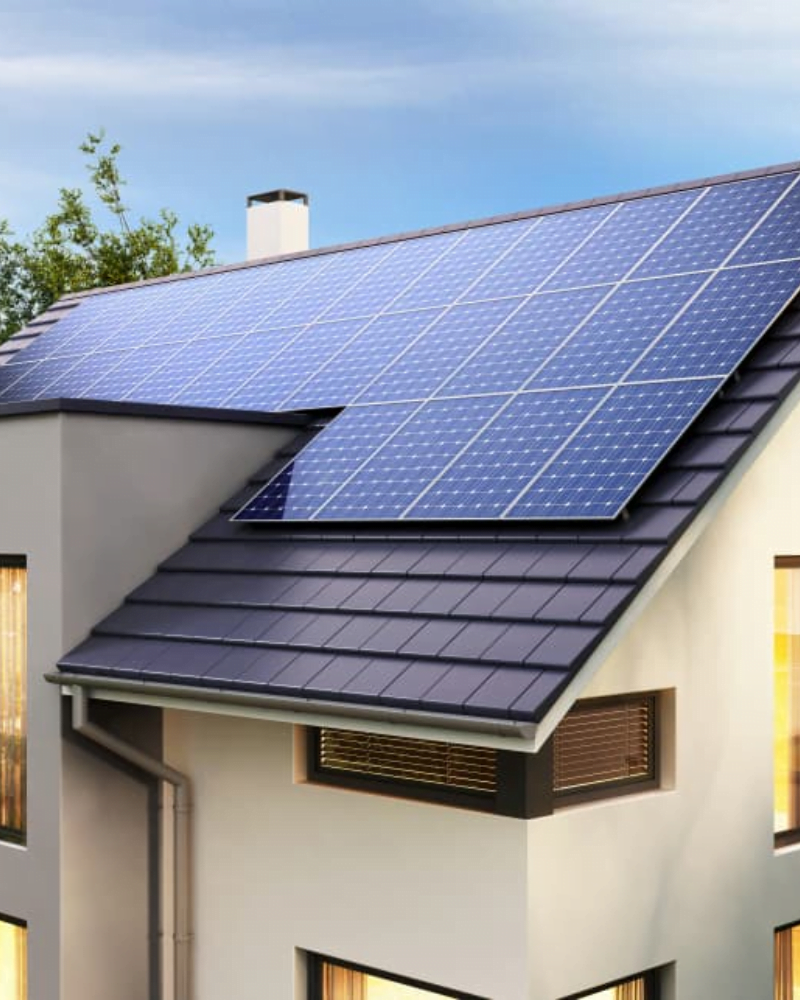On Grid Home Solar System
Things to Consider for On-Grid Home Solar Solutions
The most commonly observed type of residential solar solution, grid-tied home solar systems operate without batteries. These systems are both cost-effective and straightforward to design and install, as they consist of minimal components and are user-friendly, making them highly favored.
However, the absence of a battery poses a limitation, as homeowners cannot store excess solar power. Stored energy serves crucial purposes during emergencies or blackouts, as well as during periods when solar panels are inactive, such as nighttime. Without a battery, the primary backup source remains the local grid.
Excess electricity generated is typically directed back to the grid, and when needed, homeowners draw power from the grid instead of relying on a battery. Net metering proves beneficial in this setup, allowing homeowners to receive bill credits for surplus power sent to the grid, which can be utilized to purchase power when solar production is insufficient.
In the event of a grid outage, users of grid-tied home solar systems will experience power loss. To ensure safety, inverters automatically disconnect from the utility grid when power outages occur.

Advantages of Grid-Tied Residential Solar Power Systems:
This solar power system is the most cost-effective option.
Installation process is very easy
Financial incentives such as net metering can be utilized.
Utility grid is used as a backup when solar power is less.
Cons Of Grid Tied Home Solar Power Systems:
Without grid power, your solar system won’t work, even in sunlight.
They may be subject to utility fees.
Payment for surplus energy sent to the grid may not be provided at the full retail rate.
How Grid-Tied Home Solar Systems Work?
A Grid-Tied Home Solar System generates electricity through solar panels installed on rooftops and connects directly to the public electricity grid. Here’s a step-by-step guide on how it works:
🔋 Solar PV Panels:
Capture sunlight and convert it into direct current (DC) electricity.
🔄 Inverter:
Converts DC electricity into alternating current (AC), which is used to power your home’s electrical systems.
⚡ Grid Export:
Excess energy generated by the solar panels is sent back to the grid, earning you credits through net metering.
📊 Bi-Directional Meter:
Measures the energy produced by your solar system and tracks how much electricity you send to and pull from the grid.
🔌 Grid Backup:
Automatically draws electricity from the grid when solar energy production is insufficient, ensuring an uninterrupted power supply for your home.
Applications of Grid-Tied Solar Solutions in Residential Homes
🏡 Single-Family Homes
Grid-tied solar systems power lighting, appliances, and HVAC systems, helping homeowners save on energy costs while promoting sustainability.
🏘️ Multi-Family Residences
These systems can be installed on multi-family homes to power common areas, elevators, and other shared utilities, reducing the overall electricity expenses for residents.
🏠 Rural Homes
Grid-tied solar solutions are ideal for rural homes where grid access is available, providing an eco-friendly alternative to traditional energy sources.
